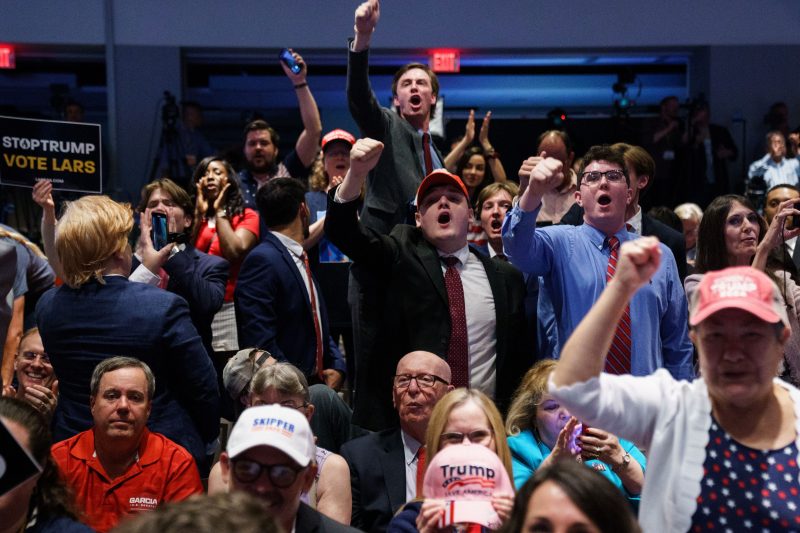In a surprising turn of events, Chase Oliver has been nominated as the Libertarian Party’s presidential candidate for the upcoming election. This decision has sparked a plethora of discussions and debates within the party and among political observers nationwide. Let’s delve into the reasons behind this nomination and what it means for the Libertarian Party’s future.
Initially, Chase Oliver was not considered a front-runner for the presidential nomination. His background as a small-business owner and advocate for individual liberties made him a relatively lesser-known figure within the party. However, his grassroots campaign quickly gained momentum as he traveled across the country, connecting with voters on a personal level and emphasizing the principles of limited government and personal freedom that are central to the Libertarian Party’s platform.
One of the key factors that contributed to Oliver’s nomination was his ability to unite various factions within the party. As a candidate who appealed to both pragmatic moderates and staunch libertarians, he was able to bridge ideological divides and bring together a diverse coalition of supporters. This skill in building consensus is seen as a valuable asset that could help the party attract a broader base of voters in the general election.
Oliver’s nomination also reflects a growing sense of dissatisfaction with the two-party system among many Americans. With partisan polarization at an all-time high and trust in traditional political institutions waning, there is a growing appetite for alternative candidates who offer a fresh perspective and a break from the status quo. Oliver’s outsider status and commitment to challenging the entrenched establishment resonated with voters who are disillusioned with politics as usual.
In terms of policy, Oliver’s platform emphasizes fiscal responsibility and limited government intervention in both the economy and personal liberties. He has called for a smaller federal government, reduced taxation, and a more hands-off approach to regulation. These positions align closely with traditional libertarian values of individual sovereignty and free-market principles, appealing to voters who prioritize economic autonomy and government restraint.
However, Oliver’s nomination is not without its challenges. As a relatively unknown candidate on the national stage, he will face an uphill battle in terms of name recognition and fundraising compared to the major party nominees. Building a robust campaign infrastructure and raising awareness of his candidacy will be crucial in order to compete effectively in a crowded and competitive political landscape.
Overall, Chase Oliver’s nomination as the Libertarian Party’s presidential candidate represents a bold and unconventional choice that has the potential to shake up the political establishment. With his grassroots appeal, ability to unite disparate factions, and commitment to libertarian principles, Oliver offers a fresh alternative to voters disillusioned with the current state of American politics. As the election season unfolds, all eyes will be on Oliver and the Libertarian Party as they strive to make their mark on the national stage.
